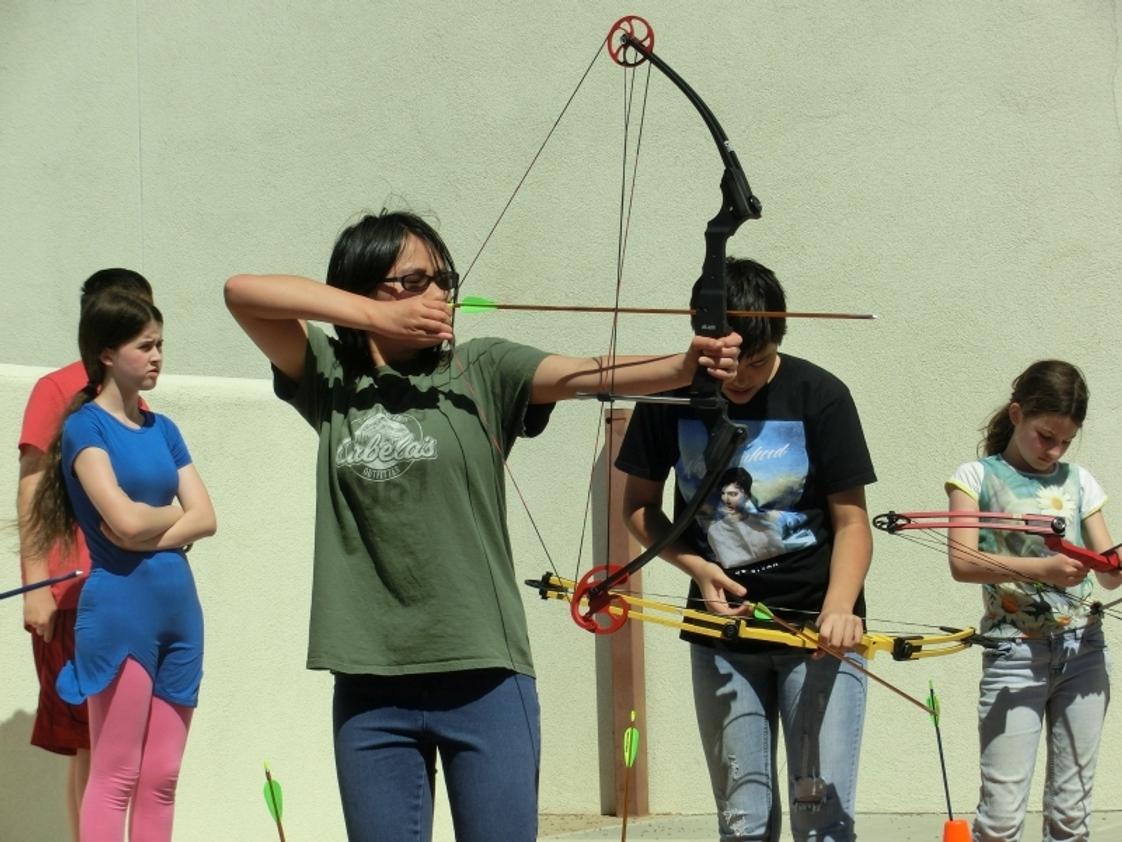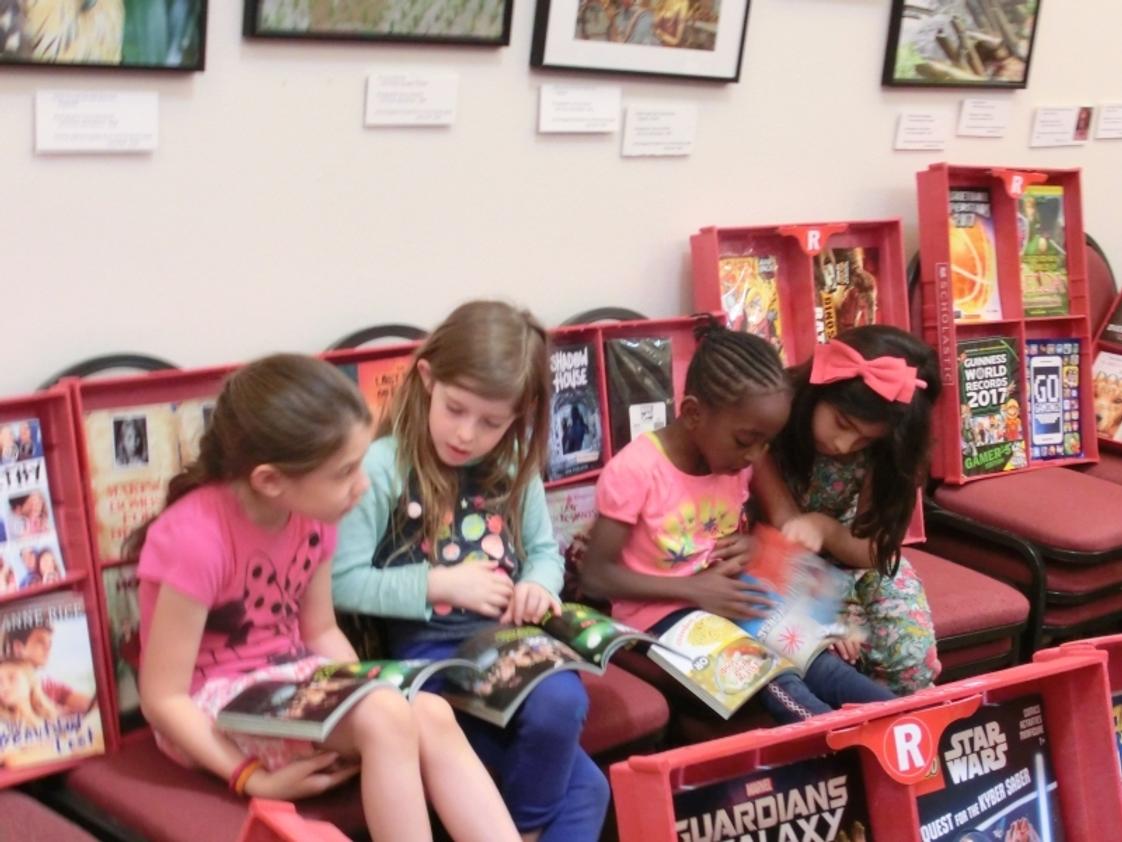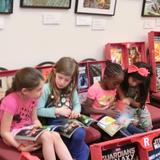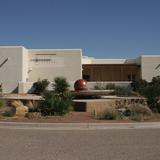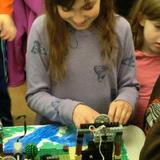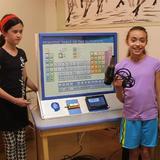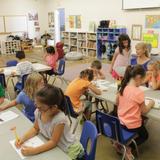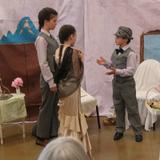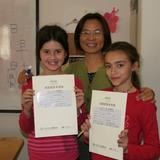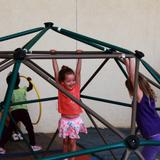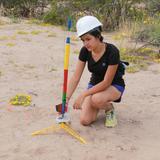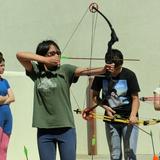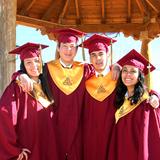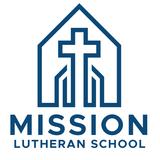Las Cruces Academy offers a strong academic program with small classes.
We emphasize reading, writing, languages (Spanish & Mandarin Chinese), math (Singapore math), science, social studies, art, music, and physical activity.
Young children learn phonics to support their reading. We also support social development, encouraging students to take charge of many activities.
Some of our students started their own school newspaper; it was their idea and they have been doing the work.
We have many after school activities: clubs for theater, math, board games, engineering and Lego challenges, and American Sign Language.
Quick Stats (2025)
- Top Ranked NM School
- School Type: School with Special Program Emphasis
- Grades: Prekindergarten-8
- Enrollment: 43 students
- Yearly Tuition: $9,620
- Acceptance rate: 80%
- Average class size: 10 students
- Application Deadline: None / Rolling
- Source: Verified school update
Top Rankings
Las Cruces Academy ranks among the top 20% of private schools in New Mexico for:
Category
Attribute
Acceptance Rate
Advanced Degrees
School Overview
School Type
Religious Affiliation
Grades Offered
Grades Prekindergarten-8
Year Founded
2007
School Calendar
Student Body
Total Students
43 students
Student Body Type
Co-ed
% Students of Color
55%
State avg.: 49%
Students by Grade
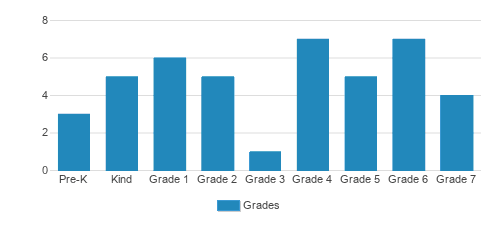
Academics and Faculty
Total Classroom Teachers
7 teachers
Student : Teacher Ratio
6:1
National avg.: 13:1
% Faculty w/Advanced Degree
86%
Average Class Size
10 students
Classroom Dress Code
Casual
Tuition and Acceptance Rate
Admission Deadline
None / Rolling
Yearly Tuition Cost
Tuition Notes
Partial scholarships are available on a need basis.
% on Financial Aid
10%
Average Financial Aid Grant
$2,500
Acceptance Rate
80%
National avg.: 85%
Admissions Director
Lou Ellen Kay, Ph. D.
Extracurriculars
Total ExtracurricularsTotal Extra-curric.
6 extracurriculars
ExtracurricularsExtra-curric.
Club or Organization:
American Sign Language, Board Games Club, Engineering Club, Lego Robotics, Math Club, Theater Club
American Sign Language, Board Games Club, Engineering Club, Lego Robotics, Math Club, Theater Club
School Notes
- We are a non-profit private school with a mission that addresses students' academic, social, and emotional needs. Las Cruces Academy serves students who are advanced and motivated academically in one or more areas, by providing academic challenge, individual attention, and a nurturing environment. Our class sizes are small (average 9.8); our teachers are experts with passion to give students a great education. Our mission is to guide them toward realization of their full potential intellectually, socially, and emotionally.
- We are committed to recruitment of enthusiastic, highly qualified teachers and staff and to small class sizes. A comprehensive curriculum with emphases on math, science, and language includes daily classes of English, Spanish and Mandarin Chinese to prepare students to effectively engage in an increasingly diverse world. Students are taught according to their ability, not age nor class. Our student-centered curriculum encourages self-directed learning, collaboration, and nurturing of intellectual curiosity and creativity. While in the classroom and at play we provide opportunities for social development and strive to impart the values of honesty, compassion, humility, and leadership. We believe that all of our students possess gifts and talents. We provide a nurturing, loving and structured environment for our students to gain self-knowledge and self-confidence. Our hope is that they become compassionate people and productive citizens and that they enjoy fulfilling lives.
- We are in a beautiful and safe environment. Please seeour page portraying our physical facilitiesand neighborhood. OurFrequently Asked Questionspage gives concise details of interest to parents and students. A cohesive narrative about our curriculum provides another good viewpoint: Our curriculum is indicative of how we achieve our mission. Broadly, we have four major divisions of our curriculum, based on nominal age groups. There are also mixed-level groups in computer programming and tennis.
- The four core groups are:(1) Early K/K. They have their own classroom with all the teaching materials and equipment. Our teacher is Katherine Bushma, with a degree in early childhood education. Kindergarten students leave the class for Chinese lessons for 5 periods each week. teacher Elizabeth Brasher teaches social studies in place; Yolanda Guevara teaches Spanish in place;
- (2) Grades 1 & 2. They also have their own classroom with very diverse teaching materials and equipment. Our teacher is teacher is Arielle Lane, with a bachelor`s degrees in Wildlife Science, a master`s degree in Education, and several certifications. Arielle also teaches math to grades 1-8, collaboratively with Head of School Dr. Lou Ellen Kay. Other teachers come to the classroom to teach music appreciation. Students leave the classroom for classes in Chinese (one of six levels, according to their ability), Spanish (one of four levels), and science 1-2;
- (3)Grades 3-5. Elizabeth Brasher teaches English, writing, social studies, music, and PE. Head of School Dr. Lou Ellen Kay teaches science 3-5 as well as cursive writing and varied special course such as life skills or Chinese geography. Students have classes in four different rooms, by subject and by level. PE is in our enclosed courtyard; tennis is on the parking lot where regulation striping has been painted professionally;
- (4) Middle school, grades 6-8. We made an innovative curriculum for this group, beginning in the 2015-16 academic year. Students have 15 subject classes each week, 10 of them specific to their group. Core classes include science 6-8 , taught by Dr. Vincent Gutschick, ranked by Stanford in the top 2% of scientists in the world in 2019. Classes in each subject meet from 1 to 5 times weekly, totaling 52 periods of group learning.
- All students have free access to our vast collection of books (3,000 on display). Students access our networked computers for class research and computer programming classes. Most students have several periods not assigned to a subject, using these periods then for reading. Beyond academic learning, our students learn leadership and service.Besides initiatives within classes, they participate in projects in the greater community. Our outreach page tells the story.
- Below we note how students may jump age boundaries, getting the most advanced classes that reward them. Our academic curriculum is designed to meet the needs of advanced and motivated students, in a number of ways: Students get classes that challenge and reward them by ability level, not age group. Our classes do have nominal age groups, such as English 3-5 or math 3-5, but students progress at their best pace. An advanced 2nd-grader is found in math 3-5. In a math 3-5 class, one finds students working in Singapore math books spanning 4 years. Classes are small 15 is a maximum, 10 is average We set the range of subjects for effective learning. For example, there are classes in both reading and writing for English, with distinct pedagogies. Math, science, and languages are our core, meeting the demands of the modern world. Students learn three world languages, English, Spanish, and Mandarin Chinese. We fill out the curriculum fully.
- The level of classes is advanced. Singapore math is a world-leading method, about 1-2 grade levels above nominal grade levels of ordinary math. Our kindergarteners learn phonics. Science and technology are taught by Ph.D. scientists who have had prolific careers in research and teaching. Subjects are not siloed. Writing ability comes up in science; math comes up in science and technology, of course. Student projects blend several subjects.Our teachers are proven experts in their subjects. No teacher has to span the curriculum, sacrificing mastery in some subjects. Our teachers hold advanced degrees or certifications, up through PhDs in the hard sciences.
- Teachers develop their own curricula, which we review for progress. We do not impose a restrictive outline. Overall, our curriculum most closely resembles the International Baccalaureate. We plan to certify that we meet IB criteria. Only Singapore math has standard textbooks. The coverage of topics in all classes is reported in our weekly newsletter by every teacher. Students spend their time learning, not taking standardized tests or preparing for them the way that public schools spend an estimated 28 days annually. Our teachers give their own tests. We use standardized testing once annually with no teaching to the test and using the results the proper way: guiding our curriculum, not imposing consequences for students or teachers.
- Our students are already doing well; upon moving to public schools, they typically get advanced or very advanced placement. Our early graduates have entered excellent universities. Outside of formal subjects, our students have other opportunities to grow academically and socially. We have six after-school or lunch-time clubs: engineering/ Lego challenges, theater, American Sign Language, math, yearbook, and board games . Students as young as in early kindergarten participate. Interesting projects also arise; students have come before the semester began to build PCs from scratch, learning about electronics, mechanical and electrical construction, operating systems, and user accounts.Our special class sessions and our range of activities outside the classroom - field trips, special performances by our students, and more - is much outsized for our enrollment. We post about ten suchspecial opportunitiesfor our students each month on our News & Events page. Scroll down to the archives to see summaries of even more.
Source: Verified school update
Frequently Asked Questions
How much does Las Cruces Academy cost?
Las Cruces Academy's tuition is approximately $9,620 for private students.
What schools are Las Cruces Academy often compared to?
Las Cruces Academy is often viewed alongside schools like Mesilla Valley Christian School by visitors of our site.
What is the acceptance rate of Las Cruces Academy?
The acceptance rate of Las Cruces Academy is 80%, which is lower than the national average of 88%. Las Cruces Academy's acceptance rate is ranked among the top private schools in New Mexico with low acceptance rates.
What is Las Cruces Academy's ranking?
Las Cruces Academy ranks among the top 20% of private schools in New Mexico for: Lowest average acceptance rates and Highest percentage of faculty with advanced degrees.
When is the application deadline for Las Cruces Academy?
The application deadline for Las Cruces Academy is rolling (applications are reviewed as they are received year-round).
School Reviews
5 2/7/2025
I attended Las Cruces Academy for six years, and it is an experience that I am most thankful for. At LCA I learned Chinese, Spanish, science, math, English, art, theater, engineering, and much more. LCA gave me such a strong foundation in my early learning. They made it possible for me to perform above my grade level all throughout middle and high school. The teachers here are caring and have so much to teach their students. I am now in college and volunteer at LCA. I am no longer a student here, but I still learn something every day from students and teachers alike.
5 2/7/2025
My daughter is satisfied until we transfer her to LCA. The school has strong academic and the teachers know how to guide and teach students very well.
5 2/7/2025
My grandson has been going there since kindergarten, and he loves it. The classes are smaller than at a public school, the curriculum is challenging, and the staff are great.
5 1/31/2025
Our family is thrilled to share our exceptional experience at Las Cruces Academy! Our two boys, ages 6 and 9, have been attending the school and absolutely love it. The faculty are dedicated, passionate, and genuinely invested in helping each child reach their full potential.The school's curriculum is well-rounded, challenging, and engaging. The small class sizes allow for personalized attention and a sense of community. The extracurricular activities are diverse and fun, catering to different interests and talents.What impresses me most is the school's commitment to fostering a supportive and inclusive environment. The teachers, staff, and administrators are always approachable, responsive, and willing to go the extra mile.Las Cruces Academy is the right place if you are looking for a school that will provide your child with a solid foundation, nurture their growth, and inspire their curiosity. We are grateful to be part of this wonderful community!
5 4/6/2020
My 5-year-old son was a student at the school on the first day it opened in 2009, and he stayed there for six years until he entered middle school. What a tremendous boost he received at the LCA! He always performs way ahead of his grade level, and right now he is a sophomore atlas Cruces High School taking pre-calculus among other advanced classes. If you are thinking about private school, the LCA is the best place in doa Ana county to send your child.
5 2/29/2020
We are very happy that our child is in his second year at the Las Cruces Academy (LCA). The school's highly-educated teachers and administrators offer a rigorous academic education in an intimate setting. As a private school, its students are not required to take stacks of stressful standardized tests. Nor is evaluation limited to traditional numerical or letter-grades, which can hide as much information as they reveal. Instead, teachers are able to provide custom feedback for parents on their child's progress. These things do not compromise rigor: Evidence that LCA succeeds in teaching fundamentals such as math, reading, science, and social studies (not to mention Chinese and Spanish) comes from the spring 2019 Iowa Test of Basic Skills, where LCA ranked in the top 1% of schools nationally. But what is even more unique is the way in which students uniformly look up to their teachers as mentors and relate to the school grounds as a second home. For example, the rows of books, games, and activities lining the hallways make its common areas feel like somewhat like a giant living room (I've borrowed some of the books myself!). During recess and after school, students can be found reading, playing games, drawing on or cutting up scrap paper, playing ping-pong, or chatting informally with their teachers, who circulate to offer guidance and foster productive social interactions. The importance of supervised free play as a complementary source of learning and of social development is stressed by LCA's administrators. After school, teachers and parents organize clubs that are tailored to meet students' interests. In summary, the school's unique layout, intimate environment, and committed teachers offer students sound academic training and help them to grow into curious, active, well-rounded people.
5 2/28/2020
I currently have two children enrolled in their second year at Las Cruces Academy. They are truly thriving and enjoying going to school every day. The pace and depth at which they are learning subjects at diverse as Computer Programming, History, Chinese, is wonderful to see. It is a very special place in which children can develop confidence as well as a love of learning.
Endorse Las Cruces Academy. Endorsements should be a few sentences in length. Please include any comments on:
- Quality of academic programs, teachers, and facilities
- Availability of music, art, sports and other extracurricular activities
- Academic or athletic awards
Recent Articles

A Parent's Guide To Understanding High School Teaching Methods
This comprehensive guide helps parents navigate the various teaching methods used in today's high school classrooms. By understanding these approaches, you'll be better equipped to support your teen's learning journey, communicate effectively with teachers, and create a complementary learning environment at home.

February 08, 2025
Social Emotional Learning: Education's Hidden SymphonyA musician's perspective on Social Emotional Learning reveals how this educational framework orchestrates success through five essential emotional competencies.

January 24, 2025
A Roadmap For Starting A Private SchoolUse this roadmap as a set of talking points with your trusted mentors and professionals to start the private school of your dreams. You're not alone. Over the years, hundreds of folks like you have had the same dream. From Quintilian to Maria Montessori to Lucy Madeira Wing, visionary educators have established schools to teach according to their beliefs and methodologies.

